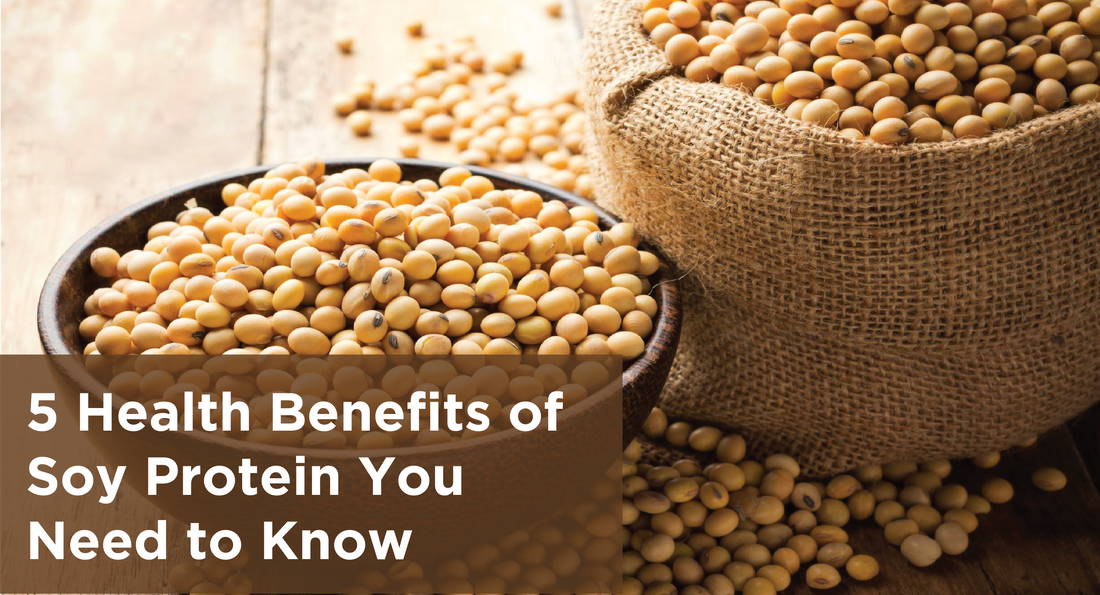Soy is incredibly versatile and a major source of protein derived from soy products. It is recognized as a complete protein because it contains all nine essential amino acids. Soy is also high in minerals like calcium, magnesium and potassium and can perform as a vegetarian high-protein meal. It is a nutrient powerhouse and is considered a good addition to the diet.
Although it is healthful and a rich source of protein, people often question whether or not it can be consumed. Well, with the help of this article, learn the potential benefits of soy protein and know whether it is a good addition to your meal when targeting a high protein diet.
The different varieties of soy
- Soy foods can be categorized as minimally processed or organic and highly processed.
- Minimally processed soy foods are considered a healthy option. This includes:
Tofu
Tempeh
Soy milk
Soy nuts
Cooked soybean
Edamame
- In the highly processed soy food options you'll find:
Soy Isolate
Benefits of soy protein
Here are all the health benefits of soy protein that you need to know.
-
Positive impact on cholesterol levels
Soy is cholesterol free and could help lower your total cholesterol. It has a positive effect on your body's cholesterol levels. According to studies, soy consumption reduces triglycerides and bad cholesterol in humans and, on the other, it increases good cholesterol levels. In short, this protects the arteries from clogging. So an increased consumption of soy foods could mean good news for people with high cholesterol.
-
Reduces risk to heart health
Soy products can protect your heart! Yes, you heard it right. Soy prevents or reduces any risks to your heart. By reducing low-density lipoprotein (LDL), soy foods could reduce the chances of stroke, heart attack or any other heart diseases. A reduced triglyceride level means a lowered blood fat in the body.
-
Reduces risk associated with cancer
Soy may provide you with protection against cancer. The isoflavones in soy reduce the growth and spread of hormones tied to cancer. Studies have also found that a plant-based diet is often associated with a reduced risk of cancer. Many researchers suggest a higher intake of soy might reduce the risk of developing cancer. According to PubMed.gov, soy foods and their isoflavone can lower the risk of prostate carcinogenesis.
-
Minimises risk of T2 diabetes
Different soy properties and isoflavones might minimize the negative effect of diabetes. Soy is naturally more efficient in controlling blood sugar and improving glucose tolerance and this is important for people who are at risk of diabetes. The isoflavones in soy could make your cells respond more to insulin. That means soy could improve insulin sensitivity and helps your cells absorb more glucose. Soy products like soy protein and fermented soy could also reduce the chances of developing T2 diabetes.
-
Could be an effective weight-loss tool
Trying to lose weight? Surprisingly, soy could aid weight loss. Even though soy is a good fit in meals that are high in protein, acts as an effective weight-loss tool. Soy can help you with improved body composition and also support good heart health. Studies have found that plant protein sources are effective when it comes to obesity management. Furthermore, many studies also suggest that daily soy intake could cause a loss of fat mass. In obese humans, soy protein lowers plasma cholesterol.
The bottom line
The plant protein source, soy, is healthier and better than processed food, carbs, and sugar. When included in moderate amounts, it could provide numerous health benefits. Based on the available scientific evidence, there's no need to avoid soy products however, more research is required to assess the benefits or risks accurately.
References:
https://www.healthline.com/nutrition/soy-protein-good-or-bad
https://www.medicalnewstoday.com/articles/320472#risks
https://www.healthkart.com/connect/7-soy-protein-benefits-you-need-to-know/





